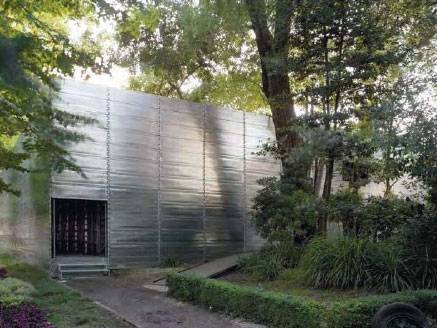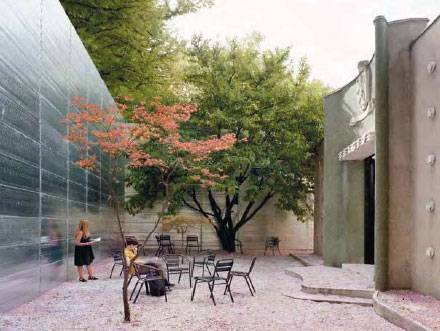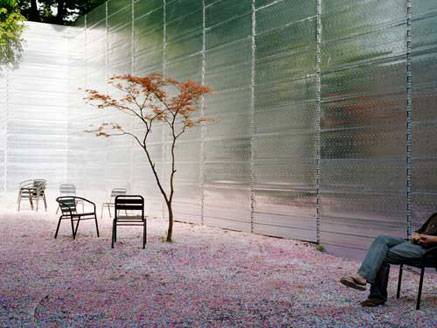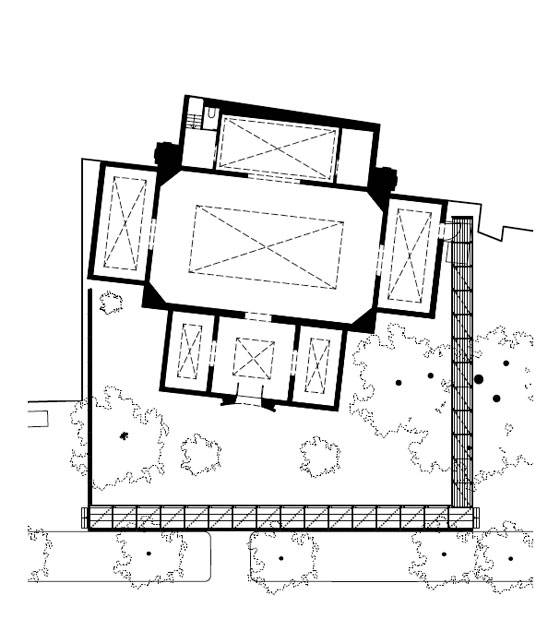‘After the Party’, Belgian Pavilion for the Venice Biennale, 2008.
Competition, 1st Prize, under development. (Fragment of competition text) “[...] We propose to exhibit the tangible results after the party. An homage to the first pavilion constructed for the Venice Biennale, we propose to display the empty Belgian Pavilion in its present state, as a substantially transformed piece of architecture, a set of rooms, a menagerie of particularities. To properly portray the building’s architecture, we cut it loose from its dominant context of the biennale. We construct a new pavilion that frames what it wants to exhibit: the Belgian Pavilion. The intention of the proposed enclosing wall and ramp is to prohibit visitors from entering the building from the main axis of the Giardini.
This forces visitors to enter in new way to reorganize the manner one perceives and experiences the Pavilion. The horizontal surfaces of the newly created interior as well as the inside of the present building are covered with confetti. The confetti’s placement marks the moment after the function, the moment after it fought gravity. The protective vellum covering the glass skylights of the Pavilion will be removed to allow its unique spaces to be viewed in natural sunlight.
The new walls and openings, the confetti, and the unmasked windows mark the experience after the party—the moment where architecture reveals its true self. Inside the proposed constellation of walls and openings, visitors will find chairs and a drinking fountain— an echo of what was there before. The fountain pays tribute to the one originally found in the pavilion’s entrance hall , a typical item of the Secessionst-era architecture. Afterwards, architecture allows silent contemplation—a place for rest after the party.”







